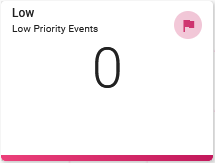![]()
The Card component allows you to drag and drop a card onto the canvas.
The Card component is supported in the List view and Dashboard view (DesignStudio Pro).
Cards can contain plain text, a link to another view, or an expression.
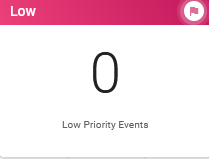
When you drag and drop a card, you can insert up to four cards side-by-side. If you insert a fifth card, it appears on the next row.
Settings
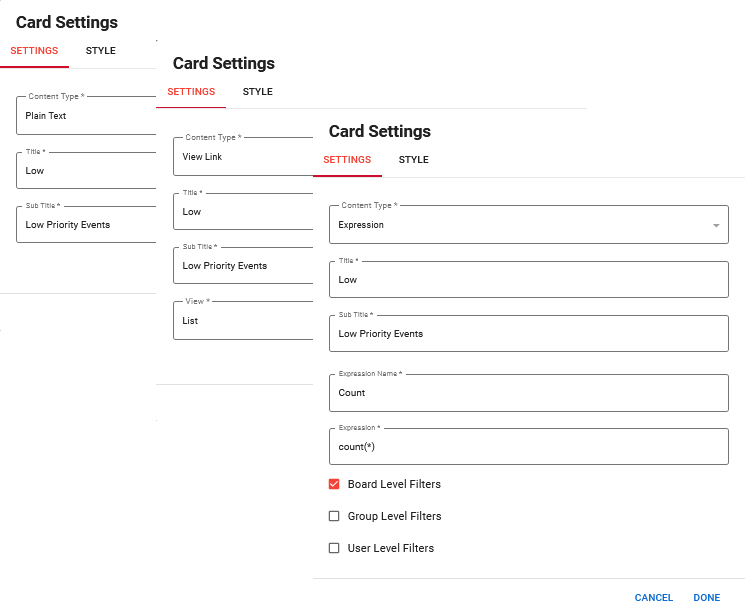
The following settings are available.
| Field | Description | Procedure |
|---|---|---|
|
Content Type |
The type of content that the card contains. The remaining fields dynamically change to accommodate your selection in this field. |
Select one of the following options.
|
|
Title |
A unique identifier that briefly describes the component in the user interface. |
Enter the title that will display at the top of the card on the board. |
|
Sub Title |
A secondary title for the card. The subtitle displays below the title. |
Enter the subtitle that will display below the title on the card on the board. |
|
View |
The view that opens when you select View Link for the Content Type. |
Select a view created in DesignStudio on the board that opens when the page is loaded. |
|
Expression Name |
The name of the expression you want to use for the card. This field displays when you select Expression for the Content Type. For information about expressions, see Expressions in the WebEOC Admin Help Center. |
Enter the expression name. |
|
Expression |
The expression that runs when the page is loaded. For information about expressions, see Expressions in the WebEOC Admin Help Center. |
Enter the expression. |
| Board | Used with External expressions, indicates the board containing the table that stores the data the expression will run on. | Select the board name. |
| Table |
Used with either External expressions or Related expressions to indicate the table that stores the data the expression will run on. |
Select the table name. |
|
Board Level Filters |
Whether view filters applied at the board level are respected when calculating an expression. |
Select the checkbox to use board-level filters. See Board, Group, and User Filters below for details. |
|
Group Level Filters |
Whether view filters applied at the feature group level are respected when calculating an expression. |
Select the checkbox to use group-level filters. See Board, Group, and User Filters below for details. |
|
User Level Filters |
Whether view filters applied at the user level are respected when calculating an expression. |
Select the checkbox to use user-level filters. See Board, Group, and User Filters below for details. |
|
Style: Layout |
The style layout of the card. Two styles are available.
|
Select one of the options.
|
|
Style: Accent Color |
The color that appears on the card. |
Select one of the gradient or solid colors. |
|
Style: Select Icon |
The icon that indicates the type of card. This icon appears in the upper right of the card.
|
Search for and select the icon. |
|
Style: Type |
The sort type according to the action that the icon represents. |
Select an action. |
Board, Group, and User Level Filters
When using expressions with the card component, you can set the expression to run on data filtered at different levels. These levels can be combined. For example, you can set an expression to run on data filtered at both the board and group levels.
If you select the Board Level Filters checkbox, data will be filtered using the active filters set at the board’s view filter level, visible in Configure mode. See Build a View Filter For a Display View for details.
Example In this example, the board-level filter of Removed is applied to the board data before an expression runs.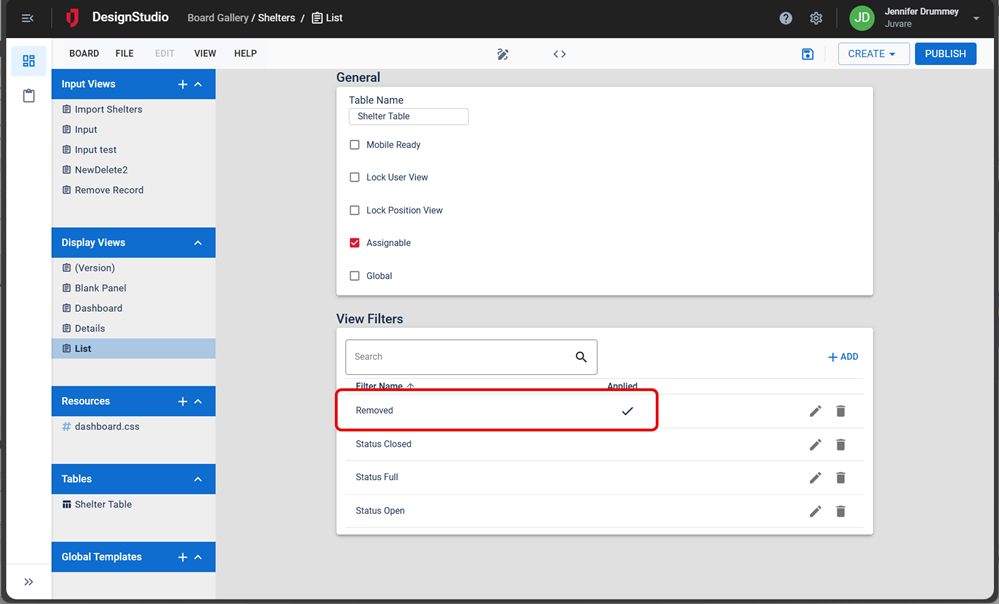
If you select the Group Level Filters checkbox, data will be filtered using the view filters set for the feature group assigned to the board in WebEOC.
Example For example, the Shelters board is assigned to the Shelters – Admin feature group. The board’s view filter for that group is set on the Edit Board window. In this example, the Active Requests filter will be applied to the board data before the expression runs for all members of this feature group.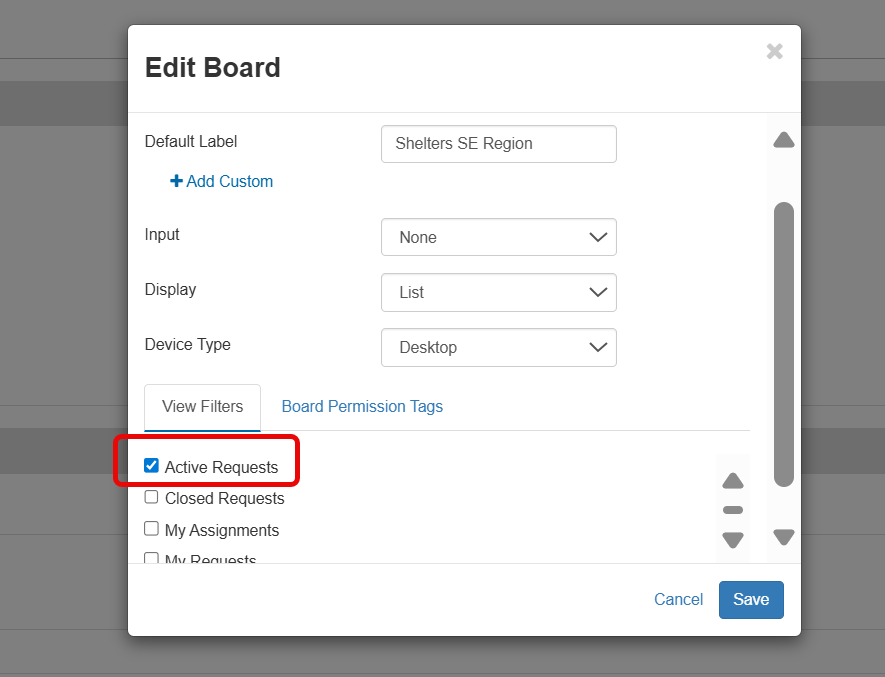
If you select the User Level Filters checkbox, data will be filtered using any filters the user has set while using the board in WebEOC. Filters could include selections the user makes in dropdowns, or selections made using the Filter button.
Example In this example, the Full filter the user selected will be applied to the board data before the expression runs.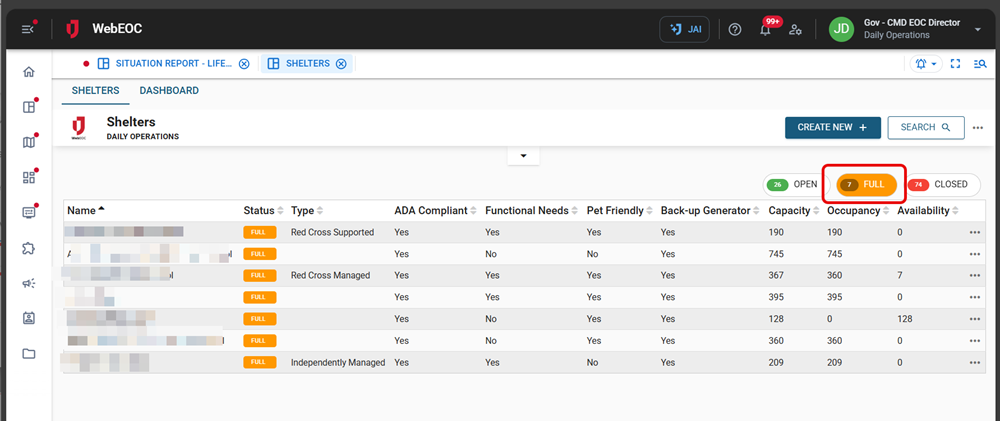
Icons
The following tool icons are available.
| Icon | Name | Description | Procedure |
|---|---|---|---|
|
|
Settings |
Displays the Card Settings window, in which you can modify the card's settings. |
|
|
|
Delete |
Deletes the current component. |
Click the Delete icon. |
